French toast, French kiss, French braid, French bulldog, and loads of other “French” things… We hear these words and phrases quite often, but the question is: are they truly “French”?
Maybe. Who knows?
Well uh, actually, I do. And soon (in a few moments), you will, too because in this article, we’ll be talking about 25 supposedly “French” terms that are not all French. Some of them are really French, but some were wrongly attributed to a Gallic origin and have nothing to do with France at all.
Let’s check it all out and set the record straight, shall we?
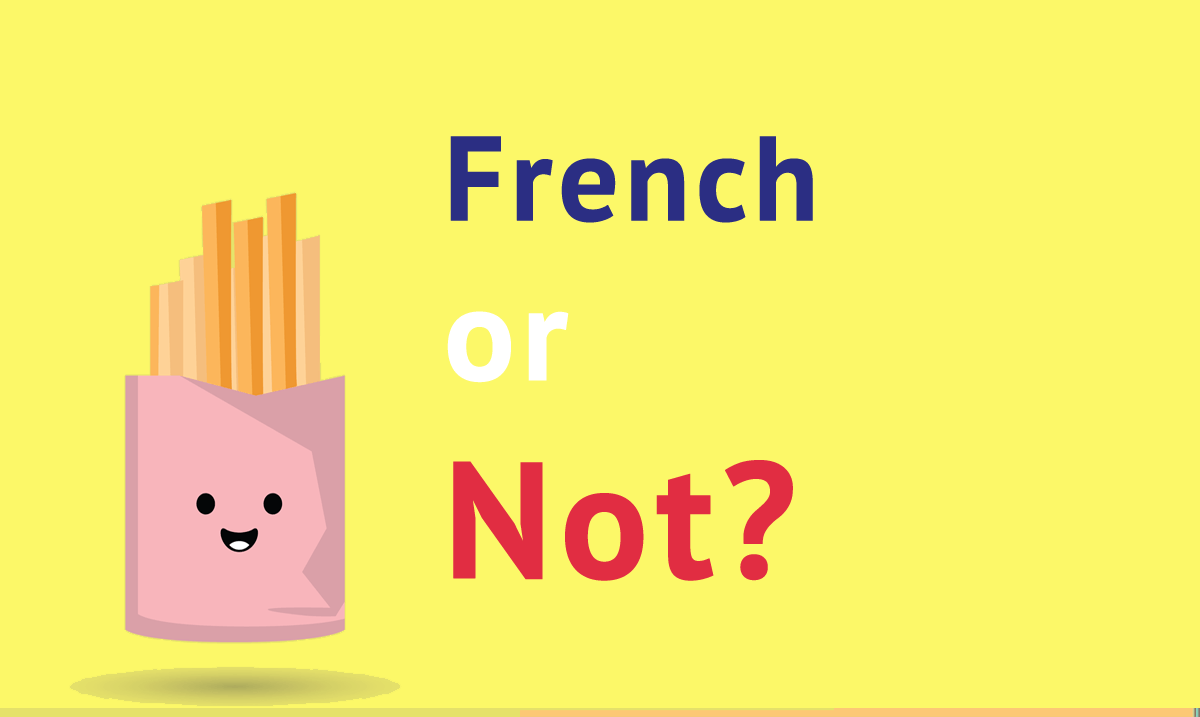
1. French Kissing
How the French call it: un baiser avec la langue, un baiser profond, un baiser torride (noun); galocher, embrasser avec la langue (verb)
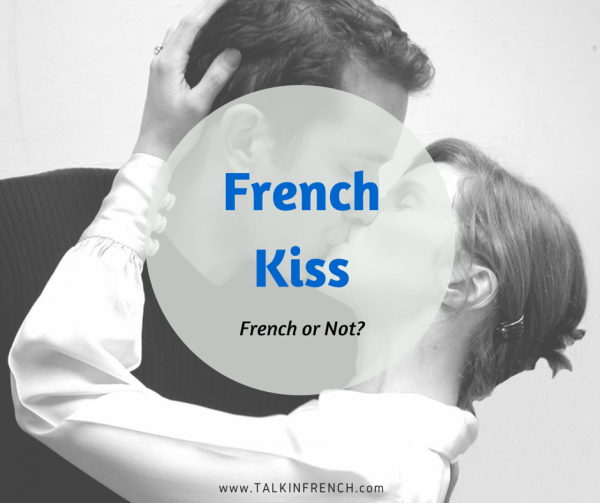
Is French Kissing originally from France?
Click to reveal if it's French or not!
Would you believe if I tell you that the French did not even have a word for French kissing until very recently? For something the French people supposedly invented, it’s funny how there’s no word for it for quite a while. Because the thing is, it was really not invented by the French!
I mean, come on, do you really think that in all of mankind’s history it was the French people who first discovered how to kiss passionately involving tongues? I don’t think so. As a matter of fact, French kissing was actually called “Florentine kissing” before that, and it was only when a bunch of World War 1 American and English soldiers dubbed it as “French” when the name stuck.
In case you need instructions on how to do the French kiss, here’s a step-by-step guide from wikihow.
Photo source
2. French Toast
How the French call it: le pain perdu
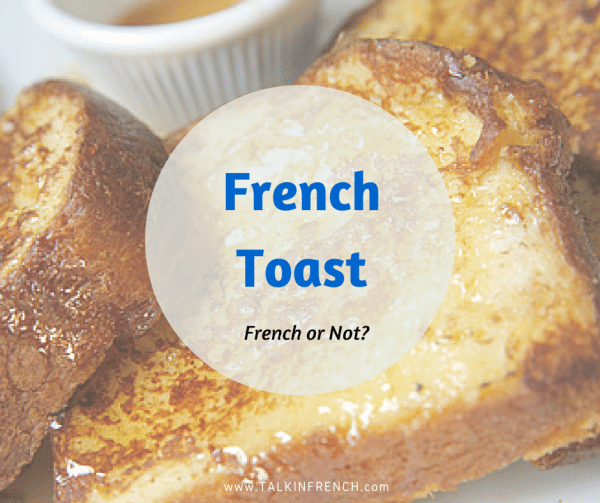
Is French toast from France?
Click to reveal if it's French or not!
French toast is actually popular in France and is called le pain perdu or “lost bread” which refers to “lost” or stale bread soaked in eggs and milk to make it softer.
But it’s not the French who first thought of this. The Romans did as early as the 4th century and they have it on record in an ancient cookbook. At present, similar recipes also come by different names such as “Spanish toast”, “German toast”, and “Gypsy toast.” Now, how French could that be?
Photo source
3. Pardon my French
How the French say it: Passez-moi l'expression
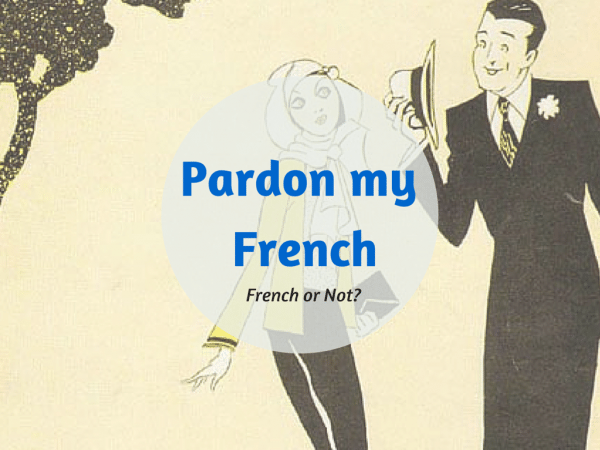
Is “pardon my French” really about French?
Click to reveal if it's French or not!
This expression which is used as an attempt to soften F-bombs or creatively disguise profanities is obviously not French.
So why on earth does it use the word French?
Turns out, back in the early 1800's when the expression first appeared in the United States, people would often pepper their sentences with a few French words here and there to make them sound refined and sophisticated. It went on like this until French words became the go-to words to use when saying something insulting, to make the blow a little less painful.
Here’s a crafty little example from an 18th to 19th century British fashion magazine: “Bless me, how fat you are grown! Absolutely as round as a ball. You will soon be as en bon point (excuse my French) as your poor dear father, the major.” En bon point or embonpoint is French for plump or overweight.
Soon enough, “pardon my French” has become so widely used that it already covers a wide range of insults and curse words.
Photo source
4. French manicure
How the French call it: la French manucure
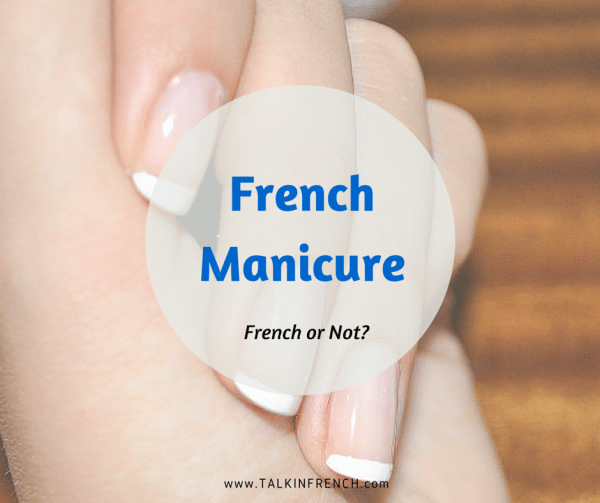
Is French manicure French?
Click to reveal if it's French or not!
French manicure is an American-invented style of manicure which makes use of light pink or nude polish on the nail and white polish on the tips. American makeup artist Jeff Pink was credited as the one who came up with this design.
According to the story, he showed it to models and clients in Paris who fell in love with the style, which he promptly named the French Manicure.
5. French Horn
How the French call it: le cor d'harmonie

Is the French horn originally from France?
Click to reveal if it's French or not!
The term “French horn” was coined around the early 18th century when French horn-makers were quite prominent; however, what is known as the French horn is actually German in origin.
Technically, the horn has French roots as it was the French who were credited for creating the circular horn shape. But later on, the French-made designs were already replaced by that of the German horns.
To avoid confusion, the International Horn Society has recommended since the 1970s that the term French be dropped, and the instrument to simply be called the “horn”.
Photo source
6. French Letters
How the French call it: la capote anglaise

Are "French letters" from France?
Click to reveal if it's French or not!
French letters is an old term referring to “condoms” and was mostly ascribed to the “French” due to the prevalent stereotype that the French are overly lusty.
But the truth is, condoms were invented in the United States!
Photo source
7. French Braid
How the French call it: la tresse à la française

Click to reveal if it's French or not!
The phrase “French braid” first appeared in a short fiction story published in an 1871 issue of a magazine. It was described as a new hairstyle, when in fact, this type of braided hairstyle has been around for ages.
Early art by the ancient Greek, Sung Dynasty as well as Celtic tribes has depicted this hairstyle, as did some rock art in Algeria that dates back to 6000 years ago.
Photo source
8. French Beans
How the French call it: haricots verts
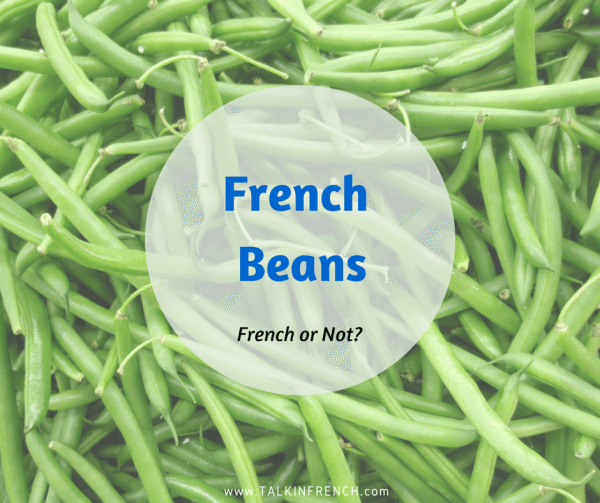
Are French beans originally from France?
Click to reveal if it's French or not!
Finally, the word namers got it right this time. French beans, a type of green beans, are indeed native to France. Haricots verts are thinner than the usual green beans and also have a more complex flavour.
9. French Bread
How the French call it: la baguette
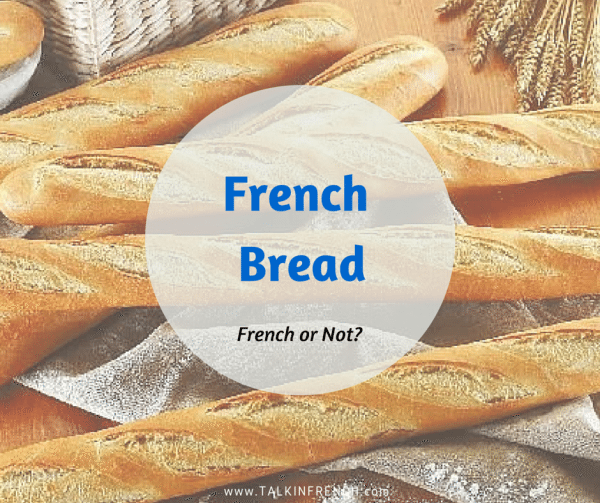
Is the French bread truly French?
Click to reveal if it's French or not!
…Aaaand we have another one that is authentically French! Yay!
But then again, how could the French bread, or simply la baguette, be anything other than French?
It’s about as French as the Eiffel Tower.
Or a stripy tee and a beret!
Really. Baguettes were already being made in France many centuries ago. In fact, “long, thin breads being carried by scurrying housemaids preparing for a Gallic breakfast” have been mentioned in journals even before the time of Louis XIV.
10. French Fries
How the French call it: la frite

Are French fries French?
Click to reveal if it's French or not!
While people have been saying that French fries are actually Belgian, new research on the history of French fries have shown that they are, in fact, French. See this article to read up all about it.
11. French Press
How the French call it: une cafetière à piston
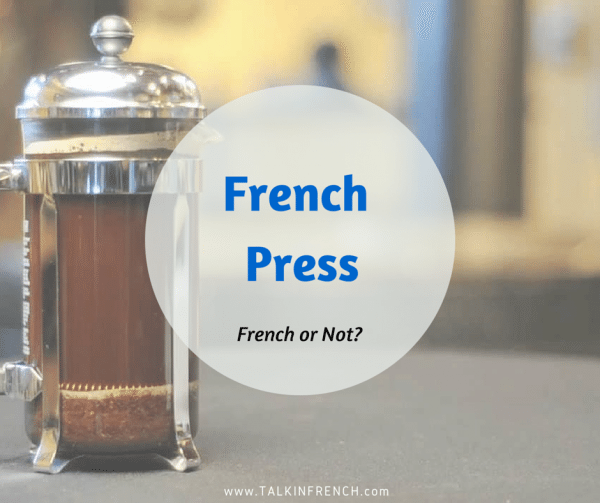
Is the French press from France?
Click to reveal if it's French or not!
This coffee brewing device was patented by an Italian guy named Attillio Calimani. So, no, it’s not French. In the UK and Netherlands, the device is called cafetière, the French word for coffeemaker.
Some people probably thought it’s easier to simply call it French press, and so the name stuck.
Photo source
12. French Dressing
How the French call it: la vinaigrette
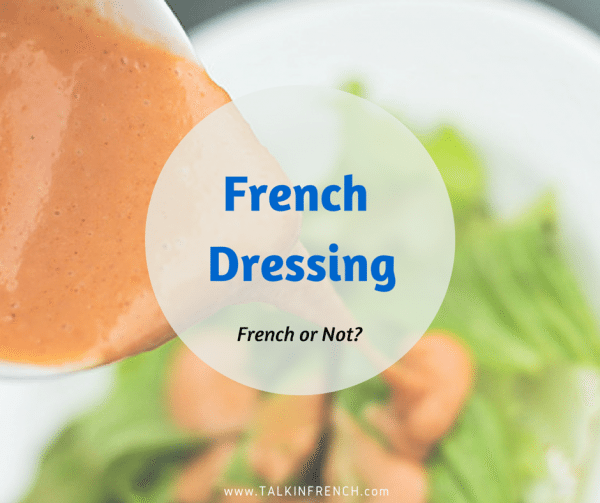
Is French dressing French?
Click to reveal if it's French or not!
The French dressing you probably know – the sweet, reddish manufactured one -- is not exactly the French dressing you’ll get when you order it in France.
La vinaigrette, the original French dressing, is made only of a concoction of vinegar, oil, and mustard. But in the 1950s, a U.S. manufacturer came up with a different version which is a bit reddish in color due to the added paprika and tomatoes.
Photo source
13. French Cricket
How the French call it: le croquet

Is French cricket really French?
Click to reveal if it's French or not!
No. French cricket is the more informal version of the original cricket which has English origins. Why it’s called French is probably some form of a jab at the French because in the game, a “French cut” is the term used to handle a poorly executed shot.
Yeah, that sucks. 🙁
14. French bulldog
How the French call it: le bouledogue français

Are French bulldogs really French?
Click to reveal if it's French or not!
The French bulldog, or Frenchies as they are lovingly called, did not really originate from France but from England.
In the 1800s when some British lace workers settled in Normandy, they brought with them smallish bulldogs. The dogs became popular all over France and quickly began to be adored by Parisians. Thus, the name French bulldog stuck and eventually became a separate breed onto itself.
15. French Poodle
How the French call it: un caniche (duck-dog)
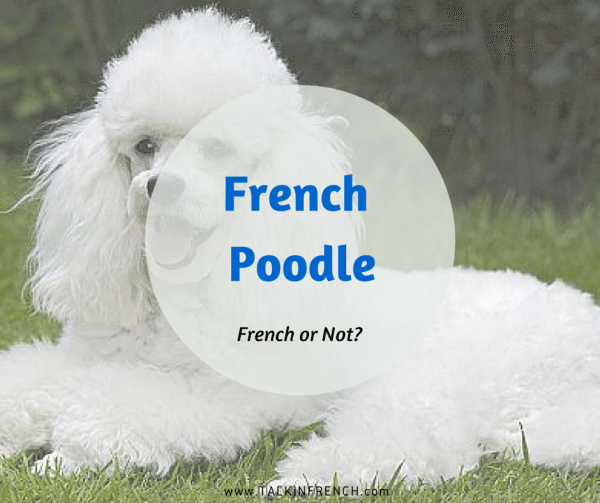
Is the French poodle originally from France?
Click to reveal if it's French or not!
Poodles most likely originated from Germany where it was called pudelhund or “puddle hound” because it’s used as a water retriever. However, it was in France where the breed was standardized and eventually became the French national breed.
16. French Roast Coffee
How the French call it: le café mélange français / torréfié à la française

Is French roast coffee really French?
Click to reveal if it's French or not!
French roast, the style of roasting coffee which results in a very dark brew and a distinct caramel taste, did not actually originate from France but from North America.
Apparently, some coffee shop owners decided that adding the word French to the name gave it a classy, fancier appeal.
17. French Twist
How the French call it: le chignon

Is the French twist really French?
Click to reveal if it's French or not!
This hairstyle is also widely known as chignon which comes from the French phrase chignon du cou. That might seem difficult to pronounce for some which resorted to calling it French twist instead.
But the style has already been around for ages. In fact, ancient Greek women were fond of sporting the style.
Still Stuck at Intermediate French?

Break through the plateau with our proven coaching and study method.

Is French vanilla from France?
Click to reveal if it's French or not!
French vanilla is used to distinguish the preparation of vanilla which was based on the classic French style of making vanilla ice cream with the use of a custard base. So yes, it’s French.
Photo source
19. French Pancake
How the French call it: une crêpe
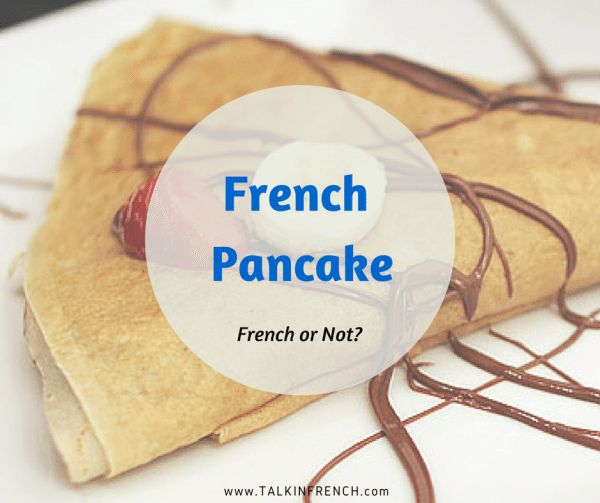
Are French pancakes really from France?
Click to reveal if it's French or not!
French pancakes are also known as crêpes which are originally from Brittany in the northwest region of France.
Photo source
20. French Door
How the French call it: la porte-fenêtre literally, "window-door"
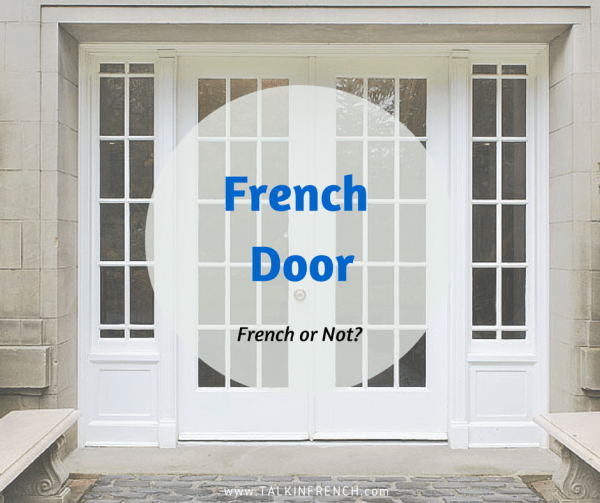
Are French doors from France?
Click to reveal if it's French or not!
French doors are rightfully named as such because they did in fact come from France in the 17th century. They were designed at first to be windows that reach the floor, but over time it evolved into doors that extend to balconies.
Photo source - Westlaland
21. French Cuff
How the French call it: le poignet mousquetaire literally, "musketeer's cuff"
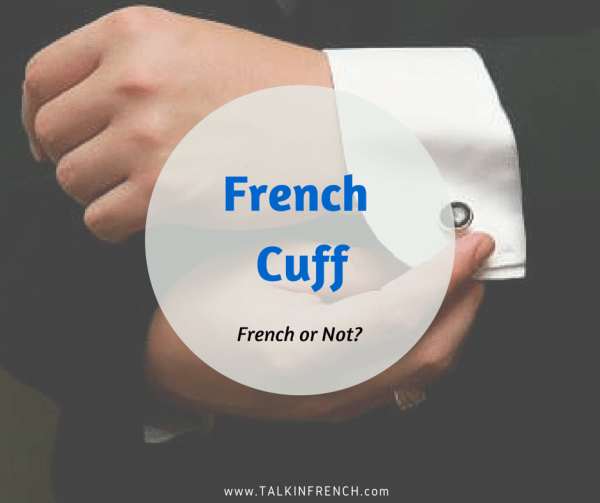
Are French cuffs French?
Click to reveal if it's French or not!
The French cuff came to be after the publication of the Alexandre Dumas novel The Three Musketeers. The detailed description in the book inspired European designers to follow suit.
22. French Disease
How the French call it: la maladie anglaise literally, "English disease."
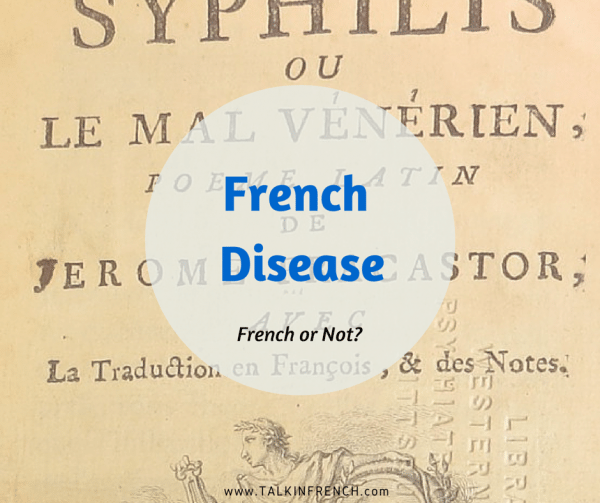
Is the "French disease" French?
Click to reveal if it's French or not!
The French disease is an old-fashioned term that refers to syphilis, and while the exact origin of the disease is disputed, evidence strongly points that the disease was present in the Americas even before it reached Europe.
The blame was pinned on one of Christopher Columbus crewmen who was supposed to have carried the disease to Europe.
The scary disease has several monikers since then: the French called it the English disease; the Japanese named it the Portuguese disease while the Persians were more creative and called it “The Turk Evil”. Yeah, way to go humanity. Let’s put the blame on whoever we dislike, shall we?
23. French Knickers
How the French call it: la culotte-caleçon
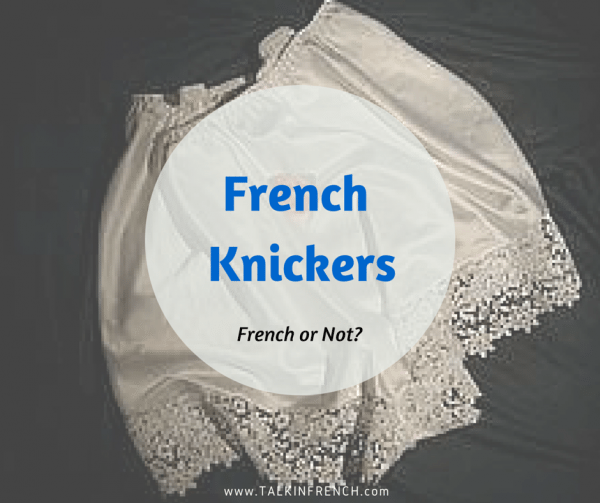
Are French knickers French?
Click to reveal if it's French or not!
This term is used in the UK and most likely got its name from the type of undergarments worn by Parisienne cancan dancers. But nope, it didn’t come from France at all.
24. French Maid
How the French call it: la femme de chambre (which means chambermaid)
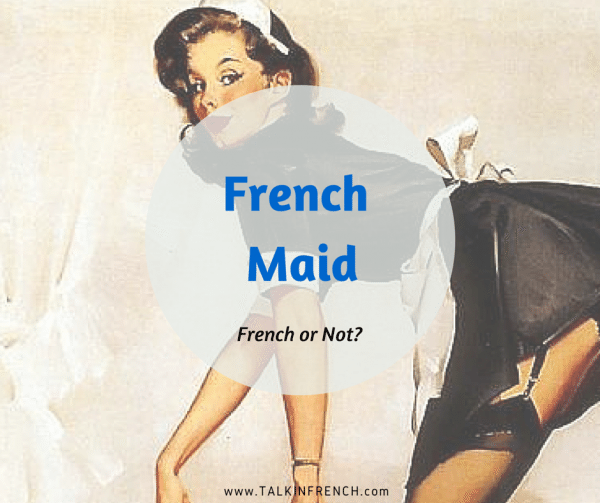
Are French maid costumes really from France?
Click to reveal if it's French or not!
While the actual French maid dress really did come from the 19th century housemaid uniform in France, today it is mostly worn as costume and ranges from conservative to the ultra-revealing.
25. French Marigold
How the French call it: un œillet d'Inde literally, "Indian carnation"
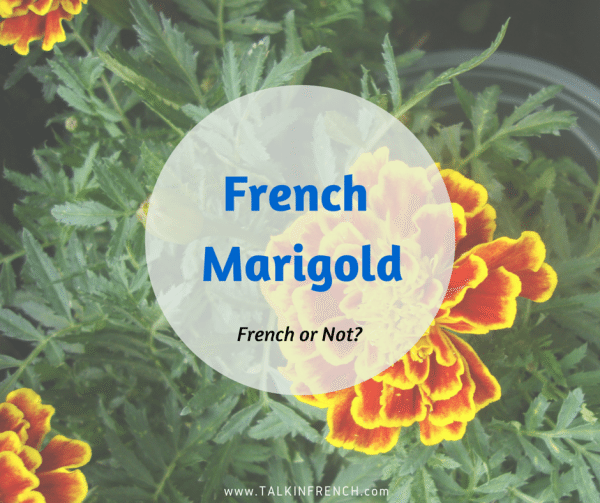
Are French marigolds really French?
Click to reveal if it's French or not!
French Marigolds are actually Mexican and Guatemalan in origin and are native to Central America. So nope, it’s not French at all. It became very popular in France in the 16th century which is most likely why people have adopted to calling it French Marigold. The French, however, refer to it as Indian Carnation.
Conclusion
Do you have any other supposedly “French” terms that have no French-ness in them whatsoever? Feel free to add in the comments!
Never miss an article from Talk in French! Subscribe to the newsletter (+ Get the Free French Learning Package) for your weekly dose an of everything French by signing up below.
SIGN UP BELOW...
AND GET INSTANT ACCESS TO THE FREEBIES


the expression take French leave which in French is translated as filer a l’anglaise. means to leave without saying anything to the hosts and hostess.
I do not know where it came from.
Here some explanations https://en.wikipedia.org/wiki/French_leave